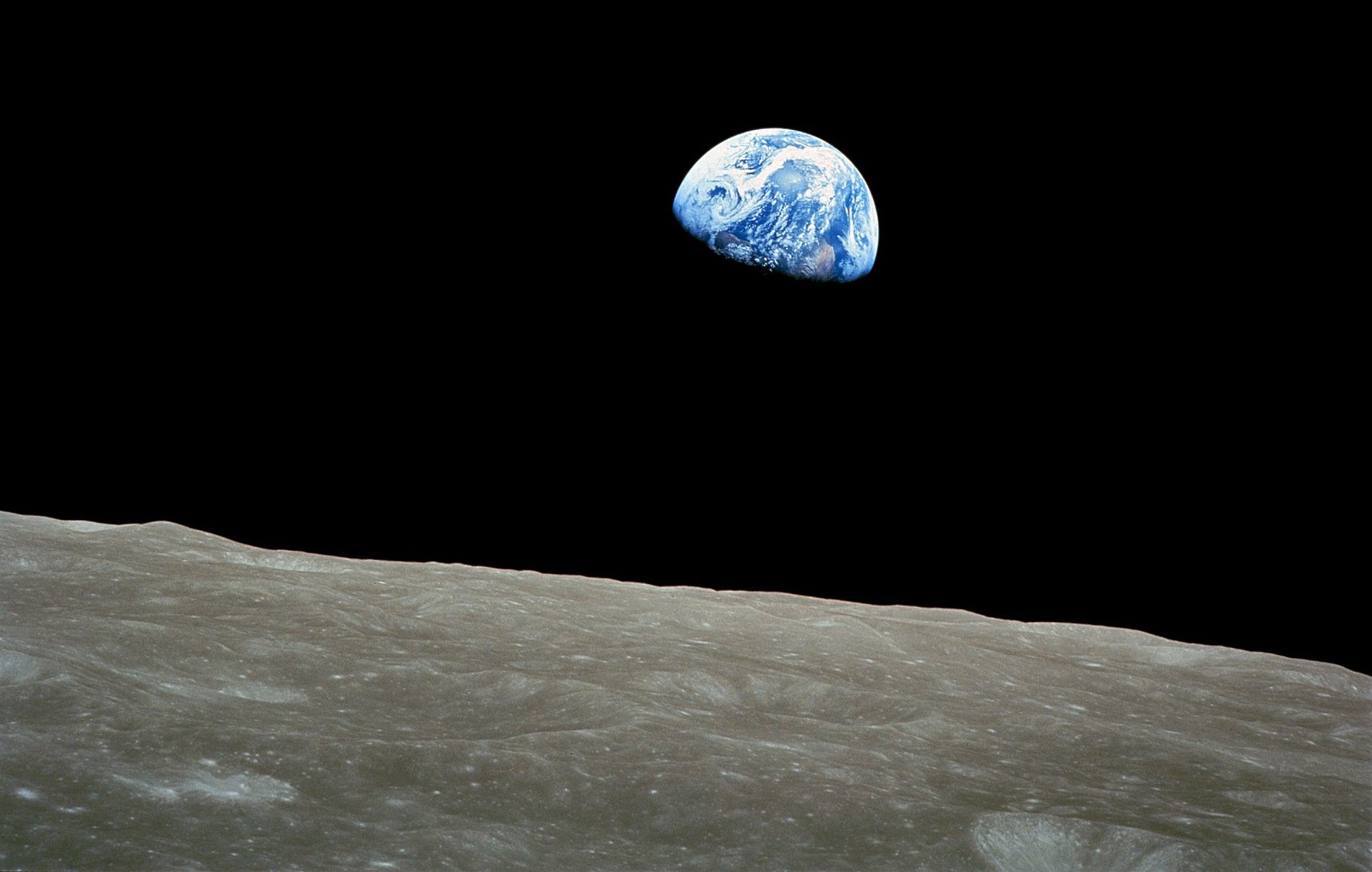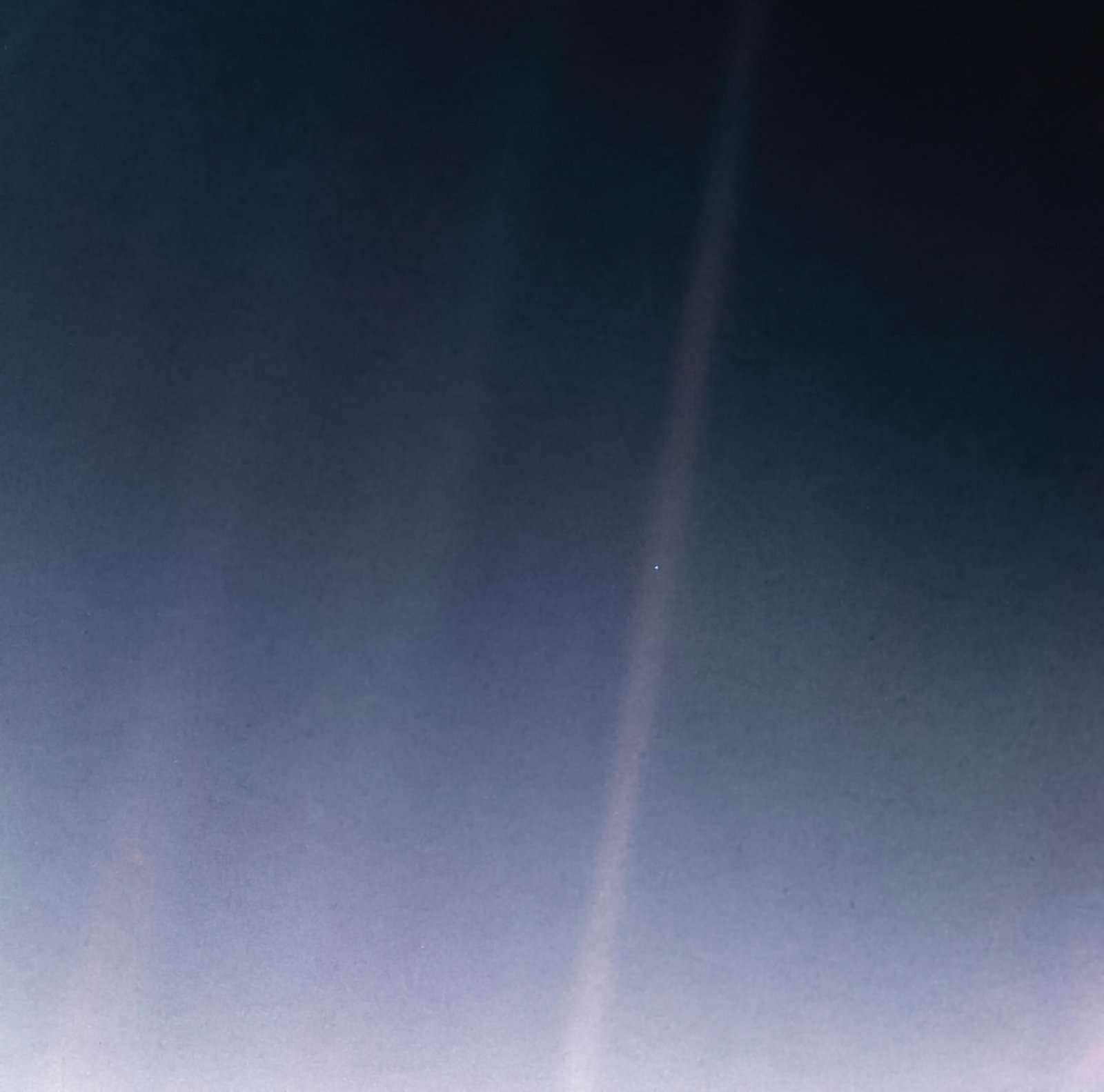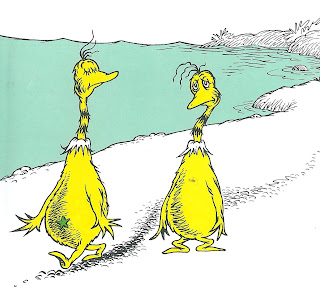The Beauty and Perils of Unity
Reflection
Politics/Social Commentary
January 2014
On the drive to the high school where I teach, there is a hill which always manages to offer me a splendid view of the morning. This past Monday when I topped the hill, due to the clouds (and probably pollution), the sun was enormous as it peaked over the horizon. It reminded me of something from The Lion King: wavy and red as a smoldering coal. I smiled to myself as I imagined the entire hemisphere spinning toward the sun. I pictured central Texas from orbit, lying right along the terminator, that faithful line which travels the globe, endlessly turning night into day.
And, as it tends to do, my mind wandered back and forth and around. There is a great quote from Edgar Mitchell, an Apollo 14 astronaut. When describing the feeling of seeing the earth from the surface of the moon, he said:

"Earth Rise", taken by William Anders, December 24, 1968
This in turn reminded me of Carl Sagan's book Pale Blue Dot. In 1990, Sagan convinced Nasa to point Voyager 1's camera back towards home and take a picture. At the time, Voyager 1 was well past Pluto, approaching the edge of the solar system itself. If you look carefully in the brown beam on the right hand side, about half way down, you'll see a small, pale speck. It's not dust on your screen; that's the earth. In his book, Sagan writes:

Pale Blue Dot: Earth as seen from Voyager in 1990 from 3.7 billion miles away.
My last fleeting thought on the drive to school was about a song which I had heard recently. My sister gave me some music from Peter Mayer, a contemporary, Catholic (maybe SBNR?), folk singer/song writer from Minnesota. The one which caught my attention is called "All the World is One", and it starts like this:
There are many other writers and thinkers I could quote along these lines. I could talk about the Gaia hypothesis or Arne Næss's Deep Ecology, and on and on, but you get the idea. The climate abides by no political map; the sea level doesn't care if it rises in a red or a blue state, a "first world" or a "developing" nation. We are all stuck here, together, on the same little ball of rock. Sagan reminds us that, so far, we live on the only known world to harbor life. This is it.
In light of this simple fact, our wars, and poverty, and hatred, and greed, all seem so petty. When we pan out, focusing on our similarities, on all of the particulars of human life that we hold in common, our differences seem small and insignificant. There is a beauty in this unity, a common human spirit that supersedes national anthems and border disputes. Our common past and common future seem to tower over our small, local grudges. The dangers of climate change and the necessity for a sustainable future should provide us with the perspective to act as a species, as humanity itself, and in the interest of all.

The Sneetches from Dr. Suesss
After all, in the end, aren't we all the same?
In graduate school, I quickly learned about the dark side of this pretty little picture of the earth, the side which hides in the cracks and shadows of the differences which, whether in theory or in practice, divide us all. The danger of thinking that we are all the same is simply that we are not. Those differences are not merely superficial; their consequences are often cruelly real, and they do not fade into the background if you fly 3.7 billion miles above the earth.
A brief example may elucidate my point. In America, we are all "created equal." We each have the "inalienable right" to the "pursuit of happiness." We are "free." The American Dream is available for all to reach out and pluck in this land of opportunity. All you have to do is reach, work hard, knock, and the doors of opportunity will be opened unto you. Legally we are all the same, with the same rights and privileges of citizenship.
While all of that sounds really nice when scrawled on paper from 1776, in reality things aren't so cut and dry. What use is freedom if one is unable to put it into practice? The freedom might as well not exist. What use is justice if the outcome depends on the color of your skin? Being black in America has real consequences, being white brings real advantages. In practice, being born into poverty guarantees you less freedom than being born into wealth. While we all are descended from the same common ancestor, the local, contingent histories of a people matter immensely. More so than our shared qualities, it is our differences which determine our lot in life.
Surely though, these differences are merely skin deep. They are but stars on our bellies, illusions to which we lend too much weight. In reality, doesn't a rose by any other name, smell as sweet?
A rose is a rose is a rose. A human is a human is a human. But is that really the answer to Juliet's question? If Romeo were not a Montague, wouldn't the story have turned out completely differently? Romeo and Juliet's last names not only were important—they were everything. Their simple human love, the same young love we've all experienced at some point in life, was not enough to overcome the hatred between hardly distinguishable groups of people fighting over a corner of a fraction of a dot. In Dr. Seuss's "The Sneetches", the sneetches grow to look past the stars on their bellies, but before their lesson was learned, having a star really did give one access to the marshmallow toasts and frankfurter roasts. While the star itself has no power, the social institutions which lend that star power are all too real.
But our differences should not be eliminated or ignored. To distinguish ourselves from the billions of other humans is important to each of us. And yet, we must ensure that those differences are not used by the powerful to exploit the weak. The happenstances of life (last names, belly stars, skin color, creed) tend to be treated as the reason for differential treatment: "the poor are poor because they are lazy"; "the majority of our incarcerated population is black because blacks are just more likely to break the law"; "it's in their nature." But these are all red herrings, distractions from the underlying problem of haves and have-nots. The challenge of multiculturalism, of so-called "political correctness," is not to avoid offending people or to force people to feel sorry about who they are. Rather, it is to account for our differences and to cling to our similarities; to embrace what makes each of us unique while still elevating what makes each of us the same; to notice the colors and texture of each little thread while stepping back to view the tapestry; to love our neighbors in all of the corners of this pale, blue dot.